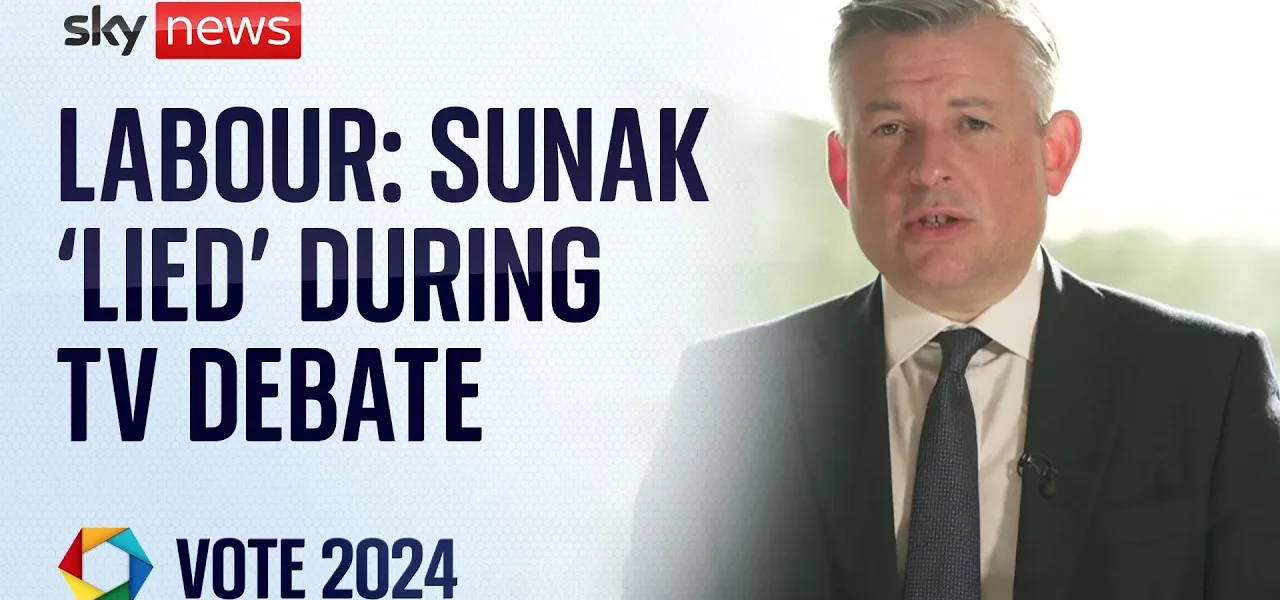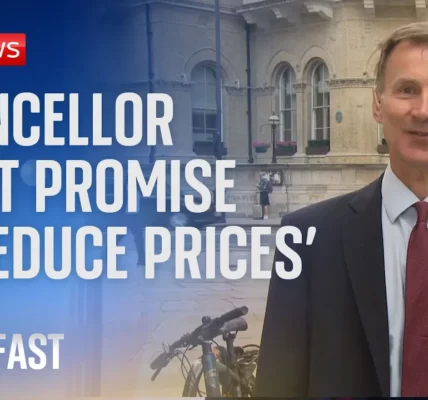Political Debate Analysis: Jonathan Ashworth Challenges Rishi Sunak’s Claims

This article delves into the recent political debate where Jonathan Ashworth addresses the inaccuracies in Rishi Sunak’s statements regarding Labour’s tax plans and outlines the party’s vision for the future amidst pressing national issues.
Introduction
In a politically charged atmosphere, the recent debate has revealed significant tensions between the Labour Party and the Conservative government under Rishi Sunak. Jonathan Ashworth, representing Labour, took to the stage to refute claims made by Sunak about Labour’s tax policies. This article explores the key points raised during the debate, the implications of these claims, and the Labour Party’s broader agenda as they approach the upcoming elections.
Debate Highlights and Key Claims
During the debate, a pivotal moment arose when Jonathan Ashworth addressed Rishi Sunak directly, characterizing his assertions regarding Labour’s tax plans as desperate lies. This section dissects the main claims made by both parties and the context surrounding them.
Sunak’s Claims on Labour’s Tax Plans
Rishi Sunak alleged that Labour would increase income tax, National Insurance, and VAT, suggesting a financial burden on households. Ashworth firmly refuted these claims, emphasizing that:
- Labour has no intention of raising income tax.
- National Insurance rates will remain unchanged under Labour’s governance.
- VAT increases are not part of Labour’s financial strategy.
According to Ashworth, these statements from Sunak reflect a broader pattern of misinformation aimed at undermining Labour’s credibility.
Labour’s Economic Strategy
In contrast to Sunak’s claims, Ashworth outlined Labour’s commitments, which he described as thoroughly funded and transparent. The key points of Labour’s economic strategy include:
- A commitment to increase NHS appointments, addressing the backlog of care.
- Plans to enhance home ownership for young people through increased housing supply.
- Proposals to alleviate energy costs for struggling households amid the ongoing cost of living crisis.
These initiatives are positioned as essential steps to rebuild the nation after years of Conservative policies.
Public Reaction and Polling Insights
Following the debate, a snap poll suggested that Sunak may have had a favorable reception. However, Ashworth remained skeptical about the significance of such polls, emphasizing that the ultimate measure of success will be determined on election day.
The Importance of Election Day
According to Ashworth, the election results will reflect the real sentiments of the electorate rather than transient polling data. He reiterated:
- The focus should be on delivering solutions to the public’s pressing issues.
- Engagement with voters is paramount to understanding their needs and concerns.
Political Climate and Safety Concerns
In light of recent events involving attacks on politicians, including Nigel Farage, Ashworth condemned violence against public figures, asserting the importance of safety in a democratic society. He called for:
- A respectful political discourse free from violence and intimidation.
- Support for politicians to campaign without fear for their safety.
This sentiment reflects a growing concern about the toxic atmosphere surrounding political campaigns in the UK.
Addressing Racism and Internal Party Issues
Amid discussions about Labour’s internal challenges, particularly regarding allegations of racism within the party, Ashworth addressed the resignations of seven Labour councillors. He affirmed the party’s commitment to addressing these issues while supporting members like Diane Abbott who are facing scrutiny.
Conclusion
In summary, the recent debate showcased the stark differences between Labour’s vision for the future and Rishi Sunak’s Conservative policies. Jonathan Ashworth’s passionate defense of Labour’s credibility and plans indicates a party ready to challenge the status quo. As the political landscape evolves, it remains crucial for voters to stay informed and engaged. For those interested in further discussions on these topics, be sure to explore our related articles on UK politics and upcoming elections.
“`




